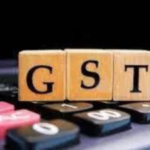NEW DELHI: The steel ministry is “actively working” towards the merger of Rashtriya Ispat Nigam (RINL) with Steel Authority of India Ltd (SAIL), said a senior government official, a development that comes in the backdrop of outgoing RINL chairman Atul Bhatt opting for leave till retirement amid worsening financial health of the troubled state-run firm.
“We do not want to privatise RINL,” the official told ET on condition of anonymity, adding that SAIL would be tasked with hand-holding the management of its fellow public sector undertaking and infusing funds to pare debt. Other plans such as selling RINL’s land to fund interest payments are being put on the back burner, the official said.
RINL, the corporate entity of Vizag Steel Plant, defaulted on servicing of term loans of ₹410.5 crore up to June. The firm incurred a loss of ₹2,859 crore in 2022-23 and has net debt of ₹20,400 crore.
Privatisation of RINL was ruled out by Union steel minister HD Kumaraswamy shortly after he took charge in July.
In February, RINL had called for sale of non-core surplus freehold land parcels in Visakhapatnam. The property was divided into 111 plots across 19 blocks.
However, the official said, “Selling land to pay back debt is not a solution to RINL’s problems.”
In January 2021, the Centre had accorded an “in-principle approval” for 100% disinvestment of government’s shareholding in RINL and its subsidiaries. But progress has been tardy on this front.
In July, India Ratings and Research downgraded RINL’s bank facilities’ ratings to IND-D from IND-BB+. “RINL’s liquidity is poor because of low-to-negative EBITDA (earnings before interest, taxes, depreciation and amortisation) generation against its significantly high debt repayment obligations,” it said.
It is estimated that RINL has ₹15,000 crore as fund and non-fund-based limit such as short-term loans, guarantees and letter of credit. “These high interest short-term loans have been flagged as mismanagement by the RINL management during deliberations with the Centre,” said a second official, who did not wish to be identified.
Source: The Economic Times




 Ministerial Panel Looks To Rework GST Rates On Over 100 Items
Ministerial Panel Looks To Rework GST Rates On Over 100 Items 